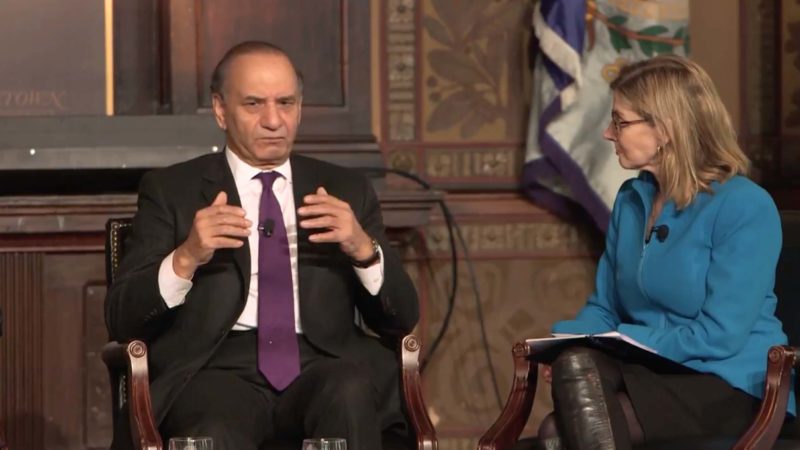The rise of domestic religious intolerance in the United States undermines our ability to advocate for human rights overseas, and threatens our national security, according to experts who took part in a March 22 public panel. Georgetown University’s Institute for the Study of Diplomacy and other university centers sponsored the panel discussion moderated by U.S. Institute for Peace President Nancy Lindborg.
In their welcoming remarks, Georgetown University President John DeGioia and Joel Hellman, dean of Georgetown’s School of Foreign Service, warned that the “tolerance of intolerance” can corrode our democracy, damage our standing internationally, and make us more vulnerable to our adversaries.
Director of the Institute for the Study of Diplomacy and former U.S. Ambassador Barbara Bodine urged “unflagging vigilance” as citizens, civil society, and public officials sought to protect American ideals of pluralism and tolerance. “When we offer easy propaganda to terrorist groups like ISIS and others who are willing to use our hypocrisy against us, we diminish ourselves, and we undercut our global role and our capacity to be champions of human rights,” she noted.
Panelist Rabbi David Saperstein, former U.S. Ambassador-at-Large for International Religious Freedom, said that the principles of the U.S. Constitution are admired around the world, particularly among religious minorities facing persecution. But increasingly inflammatory verbal attacks directed against immigrants and Muslims in America, in particular, challenge the moral authority of the United States to speak on these issues.
Panelist Farooq Kathwari, CEO of Ethan Allen, co-chair of the Muslim-Jewish Advisory Council, and a member of the ISD Board of Advisers, cautioned that terrorists are using the rise of anti-Muslim bigotry in the United States as a recruiting tool.
Looking to the future, Saperstein and panelist Shaun Casey, director of Georgetown University’s Berkley Center for Religion, Peace, and World Affairs and former Special Representative for Religion and Global Affairs, described new collaboration among religious groups, including those involved in refugee resettlement—and expressed hope in multi-ethnic and multi-religious coalitions. Casey also saw great strength in the coming generation, saying that American pluralism is a source of resilience in the face of current divisiveness.
The event concluded with responses to the panel presentation from the university’s Director for Jewish Life Rabbi Rachel Gartner and Muslim Chaplain Imam Yahya Hendi. Invited panelist Heidi Hadsell, president of the Hartford Seminary, was unable to join the group due to inclement weather.
Read ISD’s working group report on this subject, “Religious Intolerance and America’s Image and Policies Abroad.”
This event was co-sponsored by the following campus partners:
